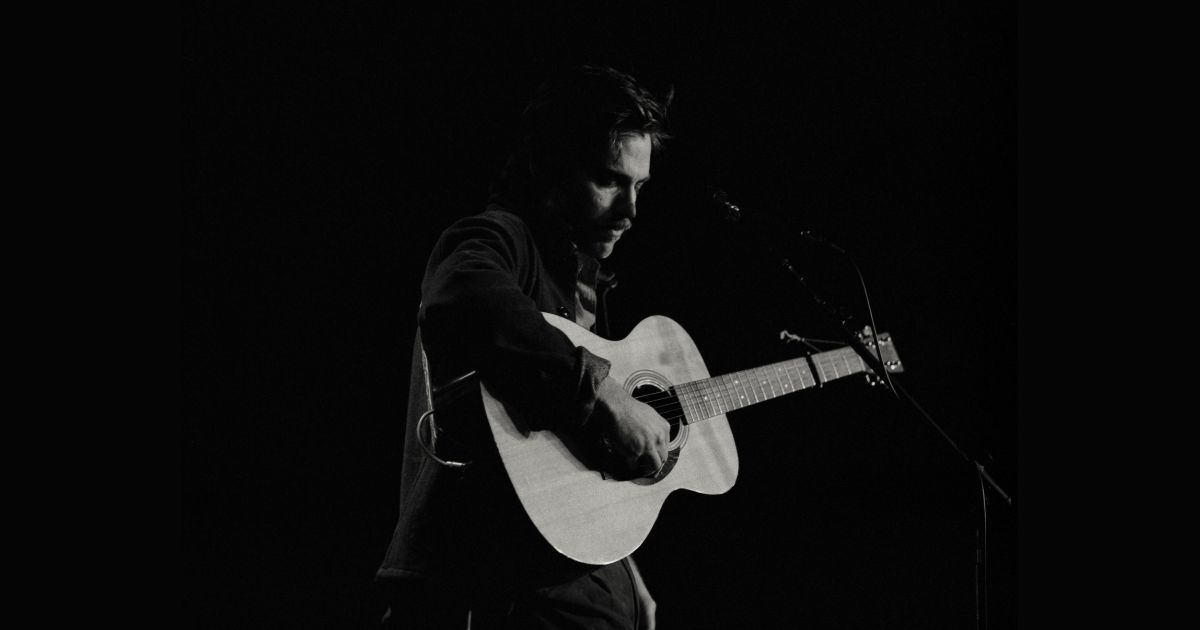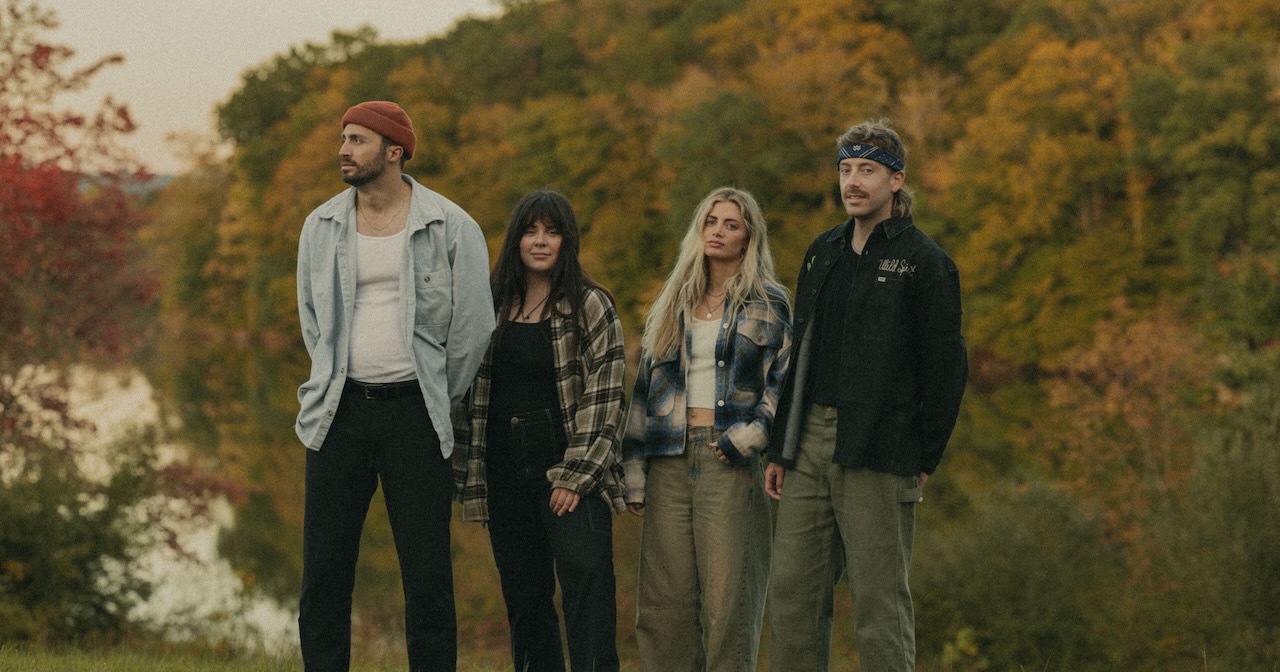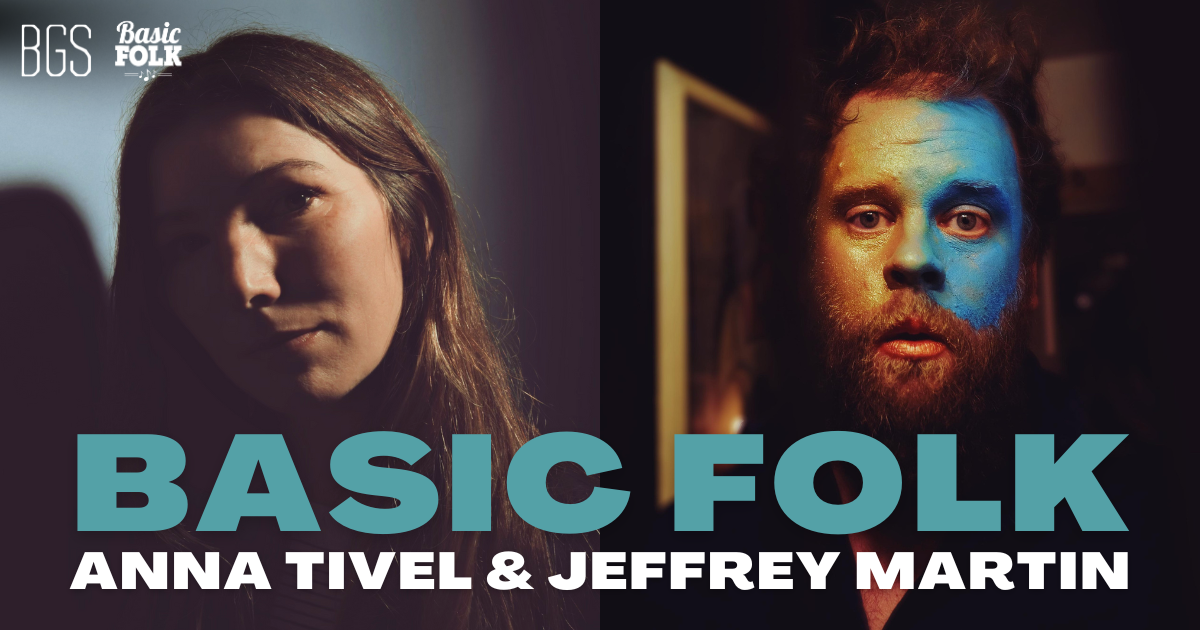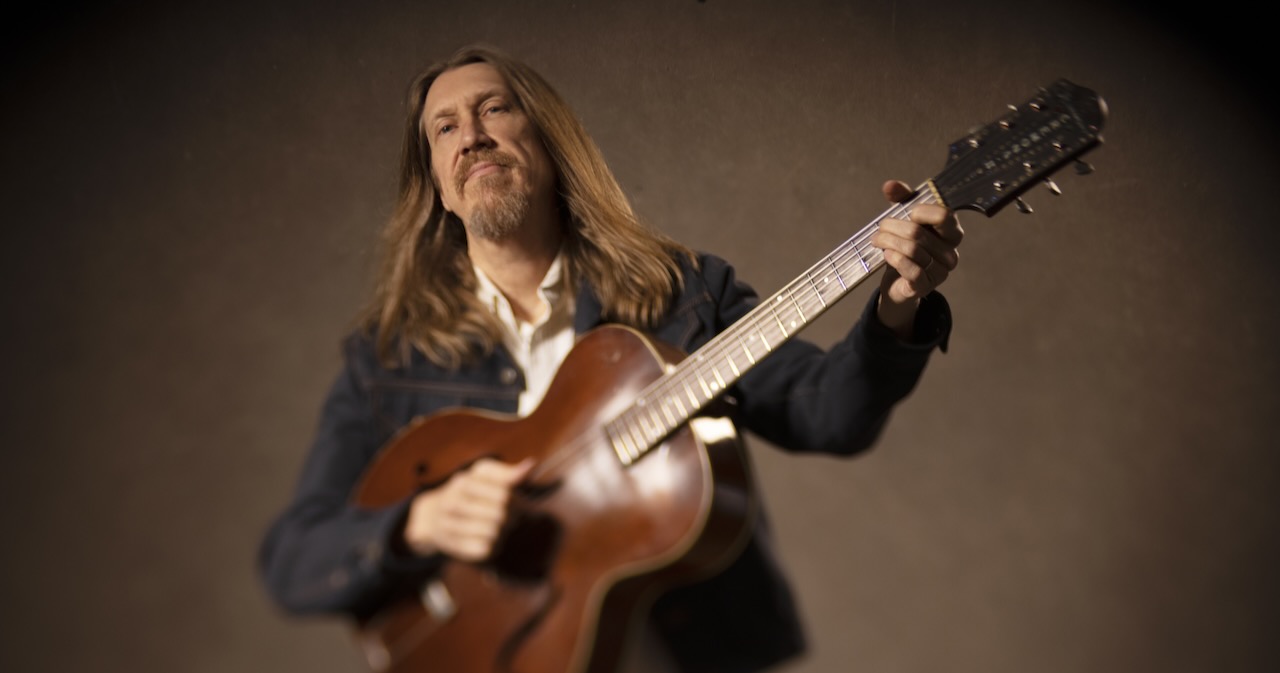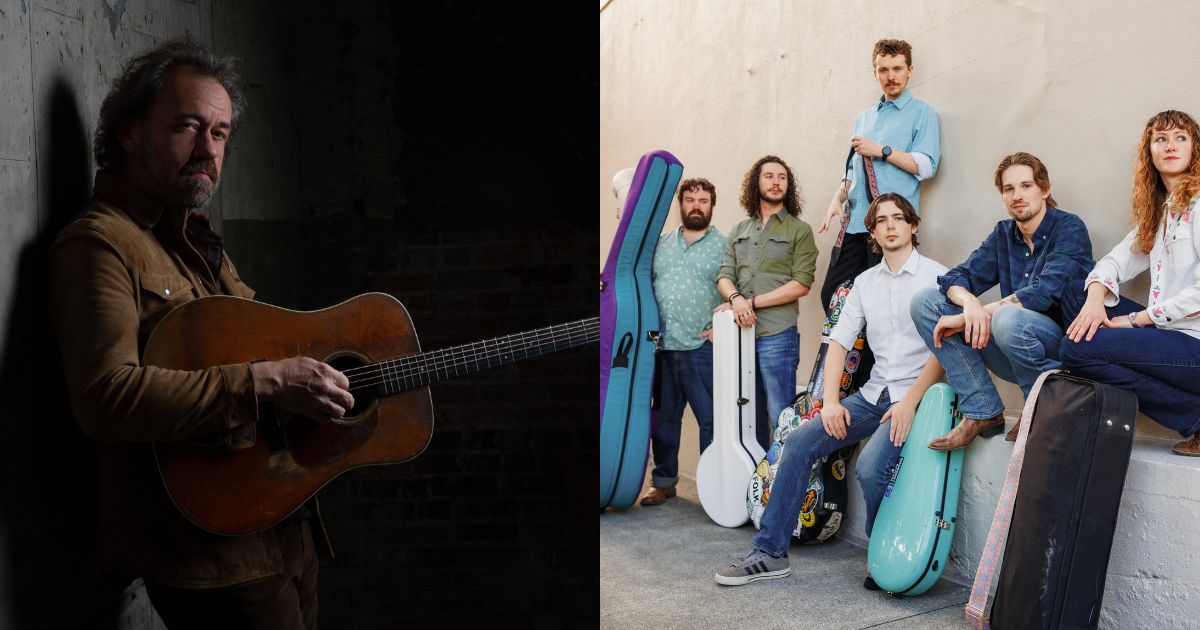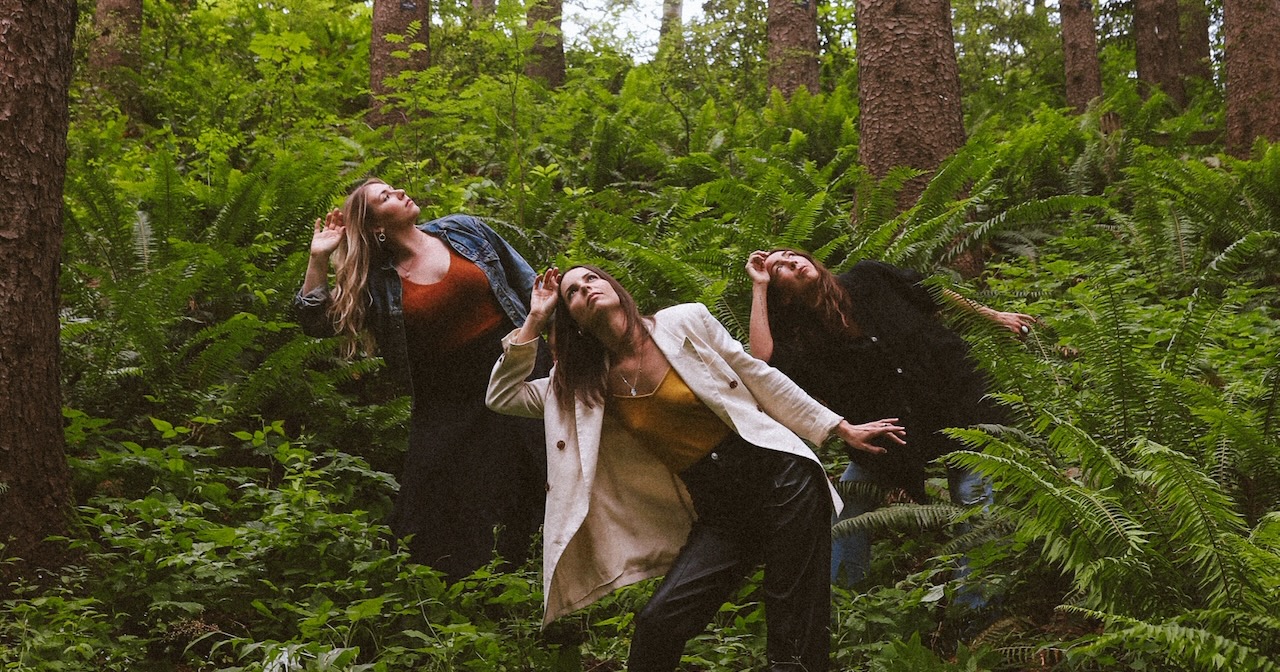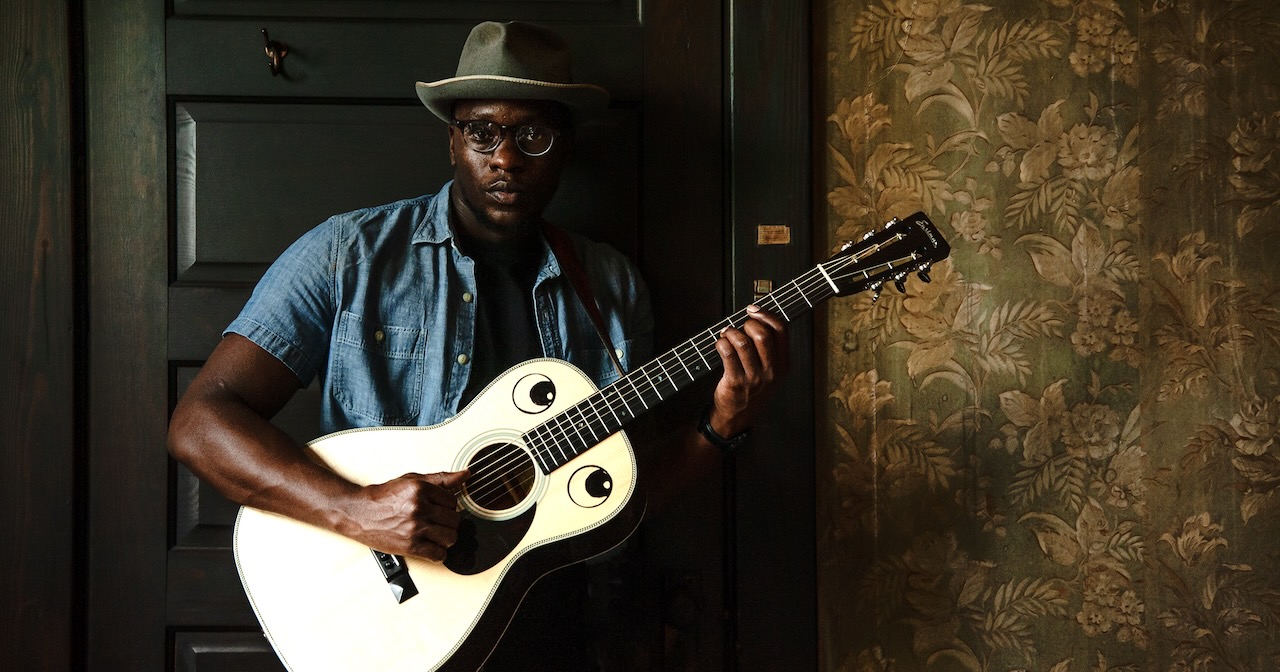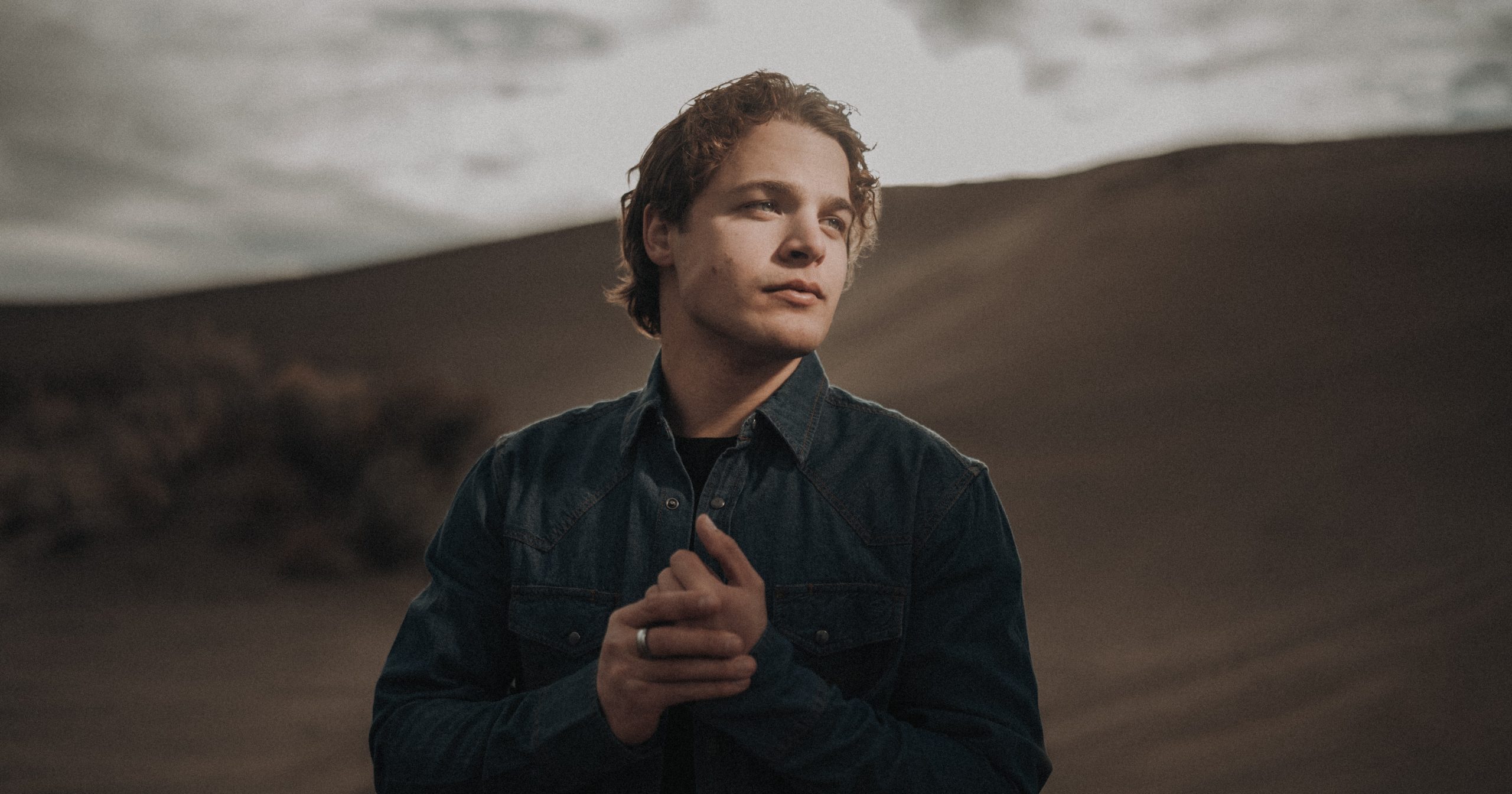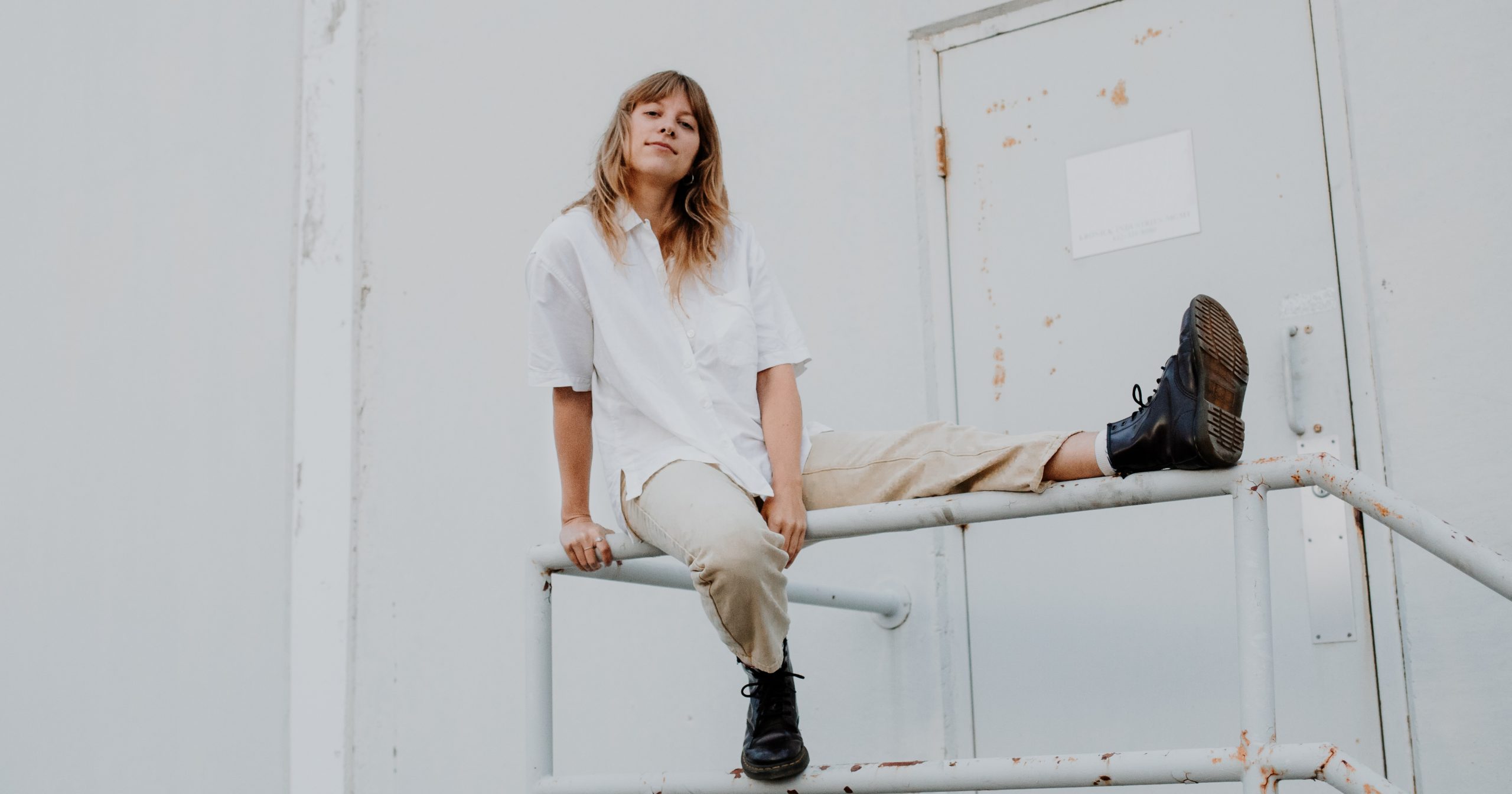Forget the information age, we live in the age of hyper-stimulation. There seems to be less space to think – or to feel – than at any other point in human history, and music is not immune to that more-of-everything-all-at-once trap. But Andrew Combs’ sixth album Dream Pictures is your chance to take a break.
An acclaimed singer-songwriter with over a decade of work bridging country, folk, and pop songcraft, Combs is all too familiar with life on the run. He spent years trading his health and sanity for the precarious life of a traveling musician, but lately he’s been on a different program.
Born from quiet evenings of creative refuge, secluded in his garage after the kids went to bed, Dream Pictures finds Combs getting off the artistic treadmill and focusing on a sustainable life – one that includes a family and creative outlets not tied to a marketing calendar.
The result is a calming, relaxed fusion of roots pop and electronic folk, full of confessional character sketches and golden-hour contemplations that may require some slowing down to appreciate – but are well worth the effort. Basically, it’s the opposite of TikTok, and Combs spent one peaceful morning chatting with BGS about where it all came from.
It’s been about a dozen years since your debut album – how are you feeling about creativity as a job these days?
Andrew Combs: I feel more at ease and more creative and productive than I really ever have and I think that probably has a lot to do with just my schedule and having kids. I have no time to just sit around, so I don’t get caught in these periods of writer’s block or anything. I just don’t have time to do that.
Ok, that sounds pretty good!
Yeah, and I feel good. But I mean, the music industry is so fucked – especially for an artist at a lower level like myself. It’s just really hard. I’ve given up in a lot of ways trying to make a full money-making career out of it. I work a part-time job and I paint as well and I’ve decided that I want to do stuff that I want to do. That’s kept me going, and I’m actually happier than ever not being on the road all the time. I’m just doing things when they make sense and not looking at it as I have to go out on the road to make money.
That’s interesting. A lot of artists say that they do their best songwriting in periods of turmoil, but Dream Pictures feels very peaceful.
Yeah, I’d say the overall thesis statement about what the record is about is being content. And not to sound too “woo woo,” but just live in the moment and appreciate what is there around you. A year or two ago, I could easily fall into looking at Instagram and thinking “I should be doing that.” But for this record, I wrote all these songs in the evening after the kids went to bed in that sort of wind-down [stage]. … I kind of liken it to the golden hour of a summer night, just that quiet and calm time when my wife and I can interact as humans and adults and I can go to the garage and do my thing.
It is peaceful, but also patient. I was thinking like, “This is the opposite of TikTok,” and I mean that in a good way.
[Laughs] I actually chose this record to sign up on TikTok and try and put stuff on there and I’m just so lost. It’s so overwhelming when you open the thing, just like, “Bam!”
Likewise, back when you first started putting out records, Americana seemed like it was really exploding and growing, with a lot of new artists coming out. I’m just wondering, do you feel like the roots music scene has evolved in the last decade or so?
I don’t know if it’s evolved or de-volved. It seems like it’s just sort of an all-encompassing net for stuff that doesn’t work other places – which is great, and the cream of the crop is still amazing, but I do feel like there’s a lot of “genericana” going on. It’s just like I got a little bored with it and my origin into making music was electronic music, and then I drifted towards songwriting and Guy Clark, Joni Mitchell, Jackson Browne, and Townes Van Zandt, that kind of stuff. I still really think songs are important and words are important, but I’m also more interested in exploring different melodic things and the sonic quality of recording. I guess for a selfish reason, it’s just to keep me interested.
I can hear that mix of electronica and songwriting on Dream Pictures. You recorded everything with your friend Dom [Billett], what do you like most about how it came out?
We didn’t know we were starting a record. Dom – who has played with me live a lot and done a lot of recording with me, but never produced something with me – over COVID he built out his studio and got a tape machine, and he was like, “I’m just trying to figure this thing out. Do you have any songs that we can try?” The first song that I brought was “Your Eyes and Me,” and that ends up being one of my favorites. You can really hear the progression of him learning the tape machine … because by the end, it just sounds like a good recording. So I like that. I also feel like Dom’s friendship shows, at least to me. We also had our friend Spencer Cullum record some pedal steel, and it’s just us three. I like collaborating – but I really like collaborating when it’s a core group.
I read that “Eventide” was dedicated to your wife. Are you writing a lot of songs about family these days? What are you feeling inspired by?
Mostly right now, it’s about that contentment and mindfulness. I think it’s important for me to get out as well as I think it’s a worthwhile message to be spreading. There are also songs on the new record that another journalist I talked to – and he meant it in a really a nice way – he said they’re “low-stakes songwriting.” Songs that are about love, or heartbreak. Those kind of songs I’ve been writing for a long time. And I’m still able to harken back to my 20s and go through those feelings. I can still feel them like they were yesterday. But it probably helps to not be in despair and look back with a clear head.
Tell me a little bit about “Mary Gold.” It has a nice, delightful little bounce to it, and I love that lo-fi pop feel. What’s that one about?
That’s just a love song, kind of a “low-stakes songwriting” song. Just a feeling of this girl who doesn’t know how special she is, but in the eyes of the beholder is special. Lyrically, I think there’s some good stuff in there, but I was really focusing on that bounce you’re talking about. That ’70s pop feel, I felt like the record could use something like that. A lot of the songs are really subtle and soft and serious.
I dig the premise of “I’m Fine” – and the falsetto hook. Is that about trying to convince yourself you’re fine? Or is that more of that feeling when somebody asks “Hey, what’s wrong with you?”
I mean, I think it’s the latter. That’s the only song I co-wrote on this record and I’ve had it for a long time. The guy I wrote it with, Burton Collins is his name, we wrote again around when I was making the record and that song was good, but it just didn’t quite fit. So I just went back through stuff we had done in the past and was like, “Let me fiddle around with that one for a bit.” It ended up being fun.
What do you like about Dream Pictures as a title? Is that a central theme for the record, or just a cool title?
Well, I originally wanted to call it Eventide, but there’s a guitar-pedal company called Eventide and all my friends were like, “Oh, the pedal?” And I was like, “No, the time of evening.” [Laughs] They were like, “I didn’t know that’s what that meant.” So then Dream Pictures stood out, and the idea of that golden hour, in-between time of chaos and peace, which can also be associated with sleep. I feel like a lot of my song ideas and painting ideas come from that time period of just falling asleep or just waking up.
Big picture, what do you hope folks take away from this one? What are you looking for in the next 10 years?
Well, I hope people find a bit of peace and quiet with the record, and I hope it’s enjoyable. It’s sort of selfish, but I’m just happy to put it out there and get a piece of me out there. I don’t know what the future holds. I could say I’m going to make a synth pop record right now, but it could turn out to be something totally different, so I really don’t know. I’m just going to keep writing and being creative and enjoying my time here on earth.
Photo Credit: Austin Leih
